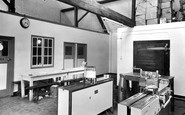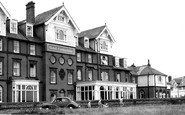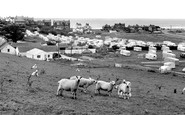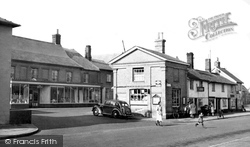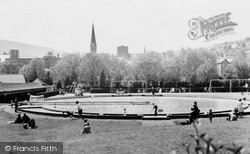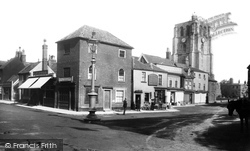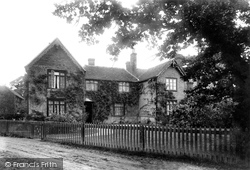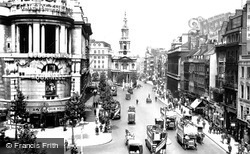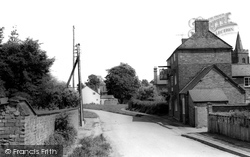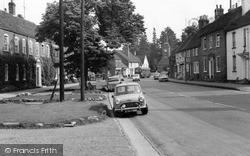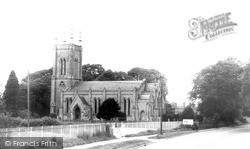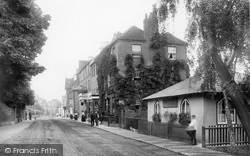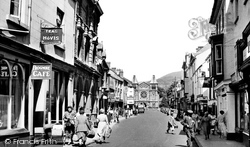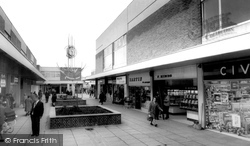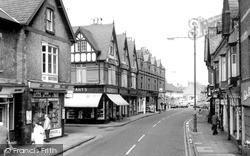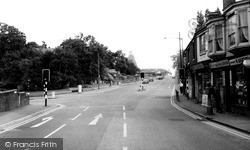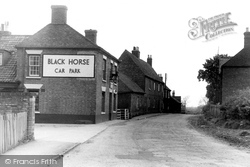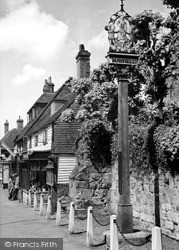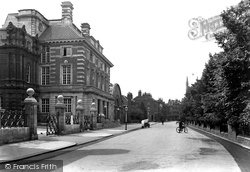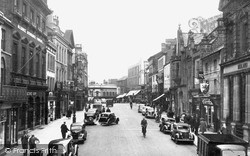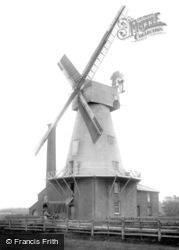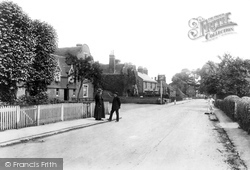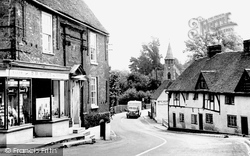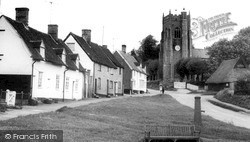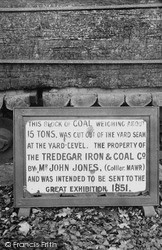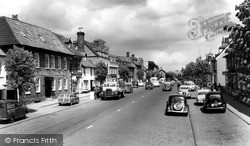Places
Sorry, no places were found that related to your search.
Photos
Sorry, no photos were found that related to your search.
Maps
Sorry, no maps were found that related to your search.
Books
Sorry, no books were found that related to your search.
Memories
741 memories found. Showing results 151 to 160.
Halls Of Galmpton
The Hall family lived scattered about Devon since the late 1600's, from what I can gather. In the 1850's to the 1890's they seemed to settle around Galmpton and Dittisham, later into Torquay and beyond. My GGG Grandfather William ...Read more
A memory of Galmpton in 1860 by
School Days
I lived at 27 Radnor Street, last but one tennament to be flattened. My first year of school was at the "new high school", on Bouquanaran; 10 class rooms open, we had to scramble among the bricks to get to class. Then I went to Radnor ...Read more
A memory of Clydebank in 1940 by
York Jones. Front Section/Choc Ice Machine Area
In this photo, you can see two machines for chopping ice cream into blocks. Some blocks were small for choc ices and wafer ices. Some were larger for making 'bricks'. In the background, on the ...Read more
A memory of Droitwich Spa in 1955 by
Happy Memories
I worked in the Hotel Continental in the very hot summer of 1976 with 3 friends. It was a glorious summer season and the sun shone endlessly, so we spent many lazy days (between work shifts!) on the beach. We danced into the early ...Read more
A memory of Mundesley in 1976 by
My Love Of Brynowen Continues
I do not remember my first visit to Borth as I would have been a few months old around about the spring of 1963. As a family we then returned every year staying at Brynowen, sometimes twice a year, until I turned 18 at the ...Read more
A memory of Borth in 1963 by
Wonderful Memories
We moved Middleton Stoney in 1954 from Weston on the Green (the lay-by transport cafe and garage). We lived in Ardley Road, in the brick house next to PA Turneys and opposite the Jersey Arms. The Varneys lived next door. ...Read more
A memory of Middleton Stoney in 1954 by
Living In Harold Hill
I lived in 71 Hailsham Road off of Straight Road till we sadly moved in the April of 1971. I always remember; the Grammar School, at the back of Appleby Drive we used to have Saturday fetes with the small steam train ride, ...Read more
A memory of Harold Hill in 1967 by
The Amazing Vaughan Family
Stan and Helen Vaughan met me at the Leicester Train station after my long journey from California. I had won a Rotary International Scholarship and the Vaughans were my host family. I was a scared young girl and I ...Read more
A memory of Desford in 1986 by
Life Until 40.
My family returned to South Ockendon in 1964, although both sets of grandparents were in South Road and Broxburn Drive. First lived in Clayburn Gardens, then in 1969 we moved to 34 Cruick Avenue. Small cul-de-sac, originally with ...Read more
A memory of South Ockendon by
The Bird Man
I was reminded today of The Bird Man who went round all the schools doing Bird Call imitations. We were at Ladyland School and this presentation was a welcome break from school work. At the close of his performance he asked for ...Read more
A memory of Kilbirnie in 1955 by
Captions
493 captions found. Showing results 361 to 384.
The wide shop on the left belongs to Henry Abbot, the long-established draper's, which became a Co-op in the late 1990s. Each alternate window on the first floor, has been blocked.
A final view of the Park with plenty of activity around the paddling pool, but with no one in it.
The tall brick building was Thomas Self, greengrocer and market gardener; to the left was Clement Poll, butcher.
The fine old farmhouse sits on a brick base and is hung with tiles and swathed in creeper.
The Gaiety Theatre dominates the corner where the Aldwych breaks off from the Strand.
The camera looks north towards the large green; on its right is the three- storey early 19th- century red brick Royal Oak pub.
We have moved nearer the High Street junction.
The parish church lies east of the Almshouses, which can be seen beyond the chancel.
The camera looks north towards the large green; on its right is the three- storey early 19th- century red brick Royal Oak pub.
Sunbury-on-Thames was only incorporated into Surrey in the administrative changes which took place in 1965, but the village dates back to Anglo-Saxon times.
The Frogmore Café (left) offered busy shoppers a break until 1969, when it was taken over by Sketchleys the cleaners.
Typifying the sixties town planning dream here, Broad Walk presents a range of shops away from the hazard and pollution of the motor car.
This scene, looking north along Banks Road from the corner of Eaton Road, has changed very little in recent years. There is still a newsagents on the corner with Alexandra Road on the left.
This picture gives a tantalising glimpse of the wonderful Red House Cone, which belongs to Stuart & Sons, makers of crystal glass.
In a not unattractive red brick, end-of-village group, it is impossible not to notice the Black Horse pub, with its well- mannered frontage and attractive pantiled roofs.
High Street c1955 Mayfield's attractive High Street, with its raised brick pavements and fine architec- ture, speaks of the days when Mayfield was an important iron town.
The ball-finialled gate piers belong to the Crown Court's forecourt, a sedate Italianate stone building somewhat dwarfed by Hall and Warwick's confident Shire Hall built for the County Council.
The Golden Lion pub on the right had its earliest licence in 1684, became subdivided into shops but reverted to an inn again by 1740.
Here we see a fine example of a white weatherboarded Kentish smock mill with a two-storey square brick base and wooden staging for access to the sails.
Here we see some fine brick houses, some with decorative bargeboards and Flemish-style gables.
Bridge Street curves down to the river. A variety of architecture is to be enjoyed here, from red brick houses to timber-framed cottages.
In this view the church seems to close the end of the village green. The three groups of cottages are timber-framed and date from the 17th and 18th centuries.
Aneurin Bevin, Tredegar's most famous son, wrote of the coalminer's lot: 'In other trades, there are a thousand diversions to break the monotony of the work - the passing traffic, the morning newspaper
The wide High Street extends for about half a mile. On the left stands the Angel Hotel of chequered brick, which dates from the 18th century. The hotel was later completely modernized in 1989.
Places (0)
Photos (0)
Memories (741)
Books (0)
Maps (0)



